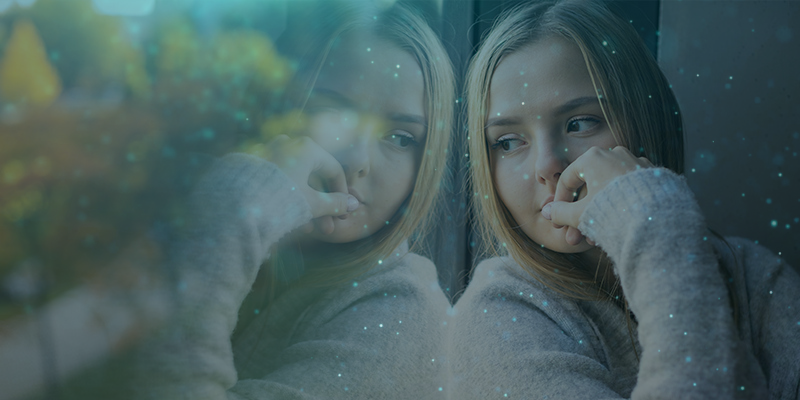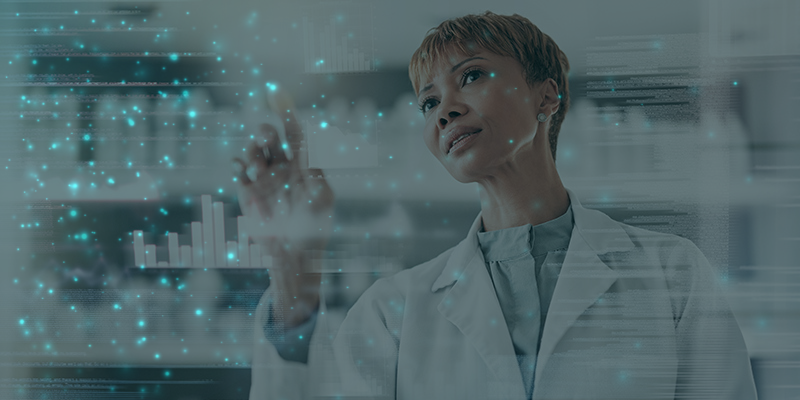
Depression, already one of the country’s most common mental health conditions, has hit a new high in the United States. According to a 2023 Gallup poll, 29% of adults in America have been diagnosed with depression at one time in their lives. And 17.8% currently have the condition or are undergoing depression treatment. These numbers reflect a 10% and 7% increase, respectively, over the organization’s 2015 stats.
Based on tens of thousands of depressed patients treated at Amen Clinics, it’s clear that far too many people with depression are engaging in habits that make the problem worse. Here, you’ll discover the worst depression habits and how to put a stop to them, so you can accelerate the healing process.
Prescription medications should be considered only one option in treating depressive symptoms—not as the first line of defense or as a single solution. Click To Tweet7 DEPRESSION DON’TS
Depression causes are numerous and multifaceted, and treatments are never one-size-fits-all. But there are certain steps anyone can take when facing the signs of depression. In fact, many of them center around things to avoid—from not drinking alcohol to limiting social media exposure. Here are 7 of the most impactful depression don’ts.
-
Stop reaching for substances to help you cope.
Drugs (including alcohol), cigarettes, sugar—Americans with and without depression often reach for substances to self-soothe. Unfortunately, these “solutions” are actually new problems waiting to happen.
They can lead to addiction, hamper brain function, or lead to long-term brain damage. Even in the short term, you’ll feel worse after using them, not better.
For example, cannabis, cigarettes, and alcohol have all been associated with lower cerebral blood flow in brain SPECT scans, which can have a negative effect on mood. Cannabis has been tied to everything from psychosis to depression and suicidal thoughts.
Drinking in excess, meanwhile, tends to exacerbate mental health conditions like depression and anxiety. And research has linked smoking with a higher likelihood of depression.
Ultraprocessed foods, also fit the criteria of causing addiction—a scary fact, since they’re a key feature of the Standard American Diet. Numerous research studies have shown the link between processed foods and symptoms of anxiety and depression.
To all of the above harmful substances: Just say no. Instead, fuel your body and brain—while reducing depression symptoms—with a well-balanced diet that incorporates fruits and vegetables, fish, lean meats, healthy fats, and whole grains.
-
Stop hiding out.
When depression strikes, it’s tempting to hibernate under the covers, isolating from others and not venturing outdoors. But these avoidance tactics actually make matters worse.
First, lack of sunlight can overstimulate melatonin production. This may lead to a sluggish or sleepy feeling while also reducing production of serotonin and vitamin D, associated with lower moods.
In addition, avoiding social activities can be detrimental to mental health, as many of us discovered during the COVID-19 pandemic. Positive social relationships can help lift mood, while loneliness and isolation have been strongly associated with depressed mood, low energy, and even feelings of worthlessness.
Finally, lounging in bed all day typically worsens, not helps, depressive symptoms. Looping and negative thought patterns can spiral out of control when we’re inactive.
Instead, distract yourself with something that gets you up and moving, like a walk outside, a phone call, or a gardening session. Such activities can move negative feelings to the back burner and give you a sense of accomplishment and purpose.
-
Stop over-relying on meds.
When it comes to mental health conditions like depression, a customized treatment plan is crucial. The brain-imaging work at Amen Clinics using SPECT scans has helped identified 7 types of depression. You need to know your type to get the most effective treatment.
In addition, everyone experiences depression differently. Antidepressants that are helpful to one patient may be useless to another.
In fact, commonly prescribed medications, including Prozac and Zoloft, may actually aggravate symptoms for certain types of depression. In other cases, prescription drugs may lead to unwanted side effects.
Other cases of depression are biologically based, related to factors like brain injury, obesity, or chronic insomnia. That means they may not respond to antidepressants. Brain SPECT imaging can assist in determining the type of depression, so that treatment can be helpful, not harmful.
In addition, prescription medications should be considered only one option in treating depressive symptoms—not as the first line of defense or as a single solution.
Numerous natural solutions can help combat the symptoms of depression. Ultimately, depression treatment must be individualized and then monitored for maximum benefit.
-
Stop indulging your negative thoughts.
Even those without depressive symptoms can struggle with automatic negative thoughts (ANTs). These destructive inner voices transmit skewed perspectives in the form of catastrophic thinking, guilt, fortune telling, mind reading, all-or-nothing thinking, blaming yourself or others…the list goes on.
Here’s the good news: You don’t have to believe any of them.
In the throes of clinical depression, it’s easy for thoughts to take a serious downturn, so ANTs are a typical feature of this condition. But that doesn’t mean they are true. Use this simple method for taking a closer look at these insidious invaders:
- Write down all of the negative thoughts you’re struggling with.
- For each one, ask yourself: Is this true? Can I be 100% sure it’s true?
- Consider how you feel when you believe that thought. Then consider the opposite—how do you feel without that thought?
Practice this form of cognitive behavioral therapy (CBT) regularly, and you’ll start to see the faulty logic and repeating patterns behind your thoughts. They will shift as you greet them with more scrutiny.
-
Stop comparing yourself to others.
In the age of social media, comparison can feel inevitable. But it’s especially demoralizing for those who struggle with major depressive disorder.
One study, published in a 2022 issue of the Journal of Behavioral Addictions, cited various previous research linking problematic social media use with depression, including a bidirectional association. This means that problem usage may lead to depression, while depression may increase problematic use.
The study concluded that female study participants were more likely to use social media in a problematic way, including comparing themselves more negatively to others. And higher problematic social media use scores were associated with depression, low self-esteem, and more negative comparisons to other social media users.
Therefore, those with depression should limit social media use. It’s both potentially addictive and harmful, particularly to young adults.
One study even linked the increase in mental health crises—including higher rates of depression and suicide—among teen girls with the rise of electronic usage. Ultimately, researchers found, more screen time was associated with worse mental health outcomes.
-
Stop allowing stresses to pile up without processing them.
Stress happens—to everyone. But for those with depression, it’s especially important to find healthy ways of processing it.
When your body is constantly in fight-or-flight mode, it’s releasing stress hormones like cortisol around the clock. Over time, you can find yourself fighting physical symptoms as a result—everything from sleep disturbances to depression.
In fact, one study from 2018 noted that chronic stress and depression may be closely linked.
Feeling stressed? Try one of these effective, natural ways to work through your feelings:
- Journaling or making a gratitude list
- Physical activity
- Meditation and/or breathing techniques
- Talking with a trusted friend or therapist
- Spending time on a favorite hobby
-
Stop feeling hopeless about your depression.
Depression often makes it difficult to see the light at the end of the tunnel. And though the stigma around mental health issues has significantly decreased as more people step forward, some still hesitate to ask for help.
If you or a loved one is struggling with this common condition, remember that depression is treatable. Left untreated, depression can lead to additional problems, such as substance abuse, chronic health conditions, or suicide.
The sooner you act, the better your outcome may be, so reach out for help immediately. Be sure to visit a mental health professional who understands that mental health is tied to brain health. When you start the journey of healing, you’ll find that there is hope.
Depression and other mental health issues can’t wait. At Amen Clinics, we’re here for you. We offer in-clinic brain scanning and appointments, as well as mental telehealth, clinical evaluations, and therapy for adults, teens, children, and couples. Find out more by speaking to a specialist today at 888-401-2910 or visit our contact page here.



I have depression OCD and anxiety.
Comment by Santo — January 19, 2024 @ 8:07 AM
I have been doing a daily routine that seems to have been very helpful for me and how I feel. I wake up and drink a large glass of water, pray, take vitamins and nutritional supplements, get morning sun and a 2 mile walk. I tell myself it will be a great day, and challenge any negative thought. I end my day with a review of any good thing that happened no matter how small. The last thing, then read the Bible, takes the anxiety away, I still struggle with a healthy diet, I really crave sugar and coffee! This routine is so much more than I have ever done before—consistently. I will continue these small steps, I recommend them to everyone.
Comment by Carolyn Mchaney — January 19, 2024 @ 5:31 PM
Do you treat patients in Minnesota? If so, do you accept the PMAP BCBS plan?
Comment by Deb Sheehy — January 20, 2024 @ 7:52 PM
Please use the term “brain health” / “brain health condition” / “brain health issues” / etc and NOT “mental health” or “mental illness”. The term “mental illness” only exacerbates the stigma that already exists since the words “mental” and “illness” each have a negative connotation. We use the terms “heart health” / “bone health” / etc to stress the organ or part of the body needing treatment. Let’s do the same with “brain health’”. The brain is just another organ in the body that needs to be cared for and sometimes medically treated to remain healthy.
Comment by Linda Heinrich — January 21, 2024 @ 4:36 AM
Thank you for your useful compassionate information.
Comment by Sally shinn — January 21, 2024 @ 6:50 AM